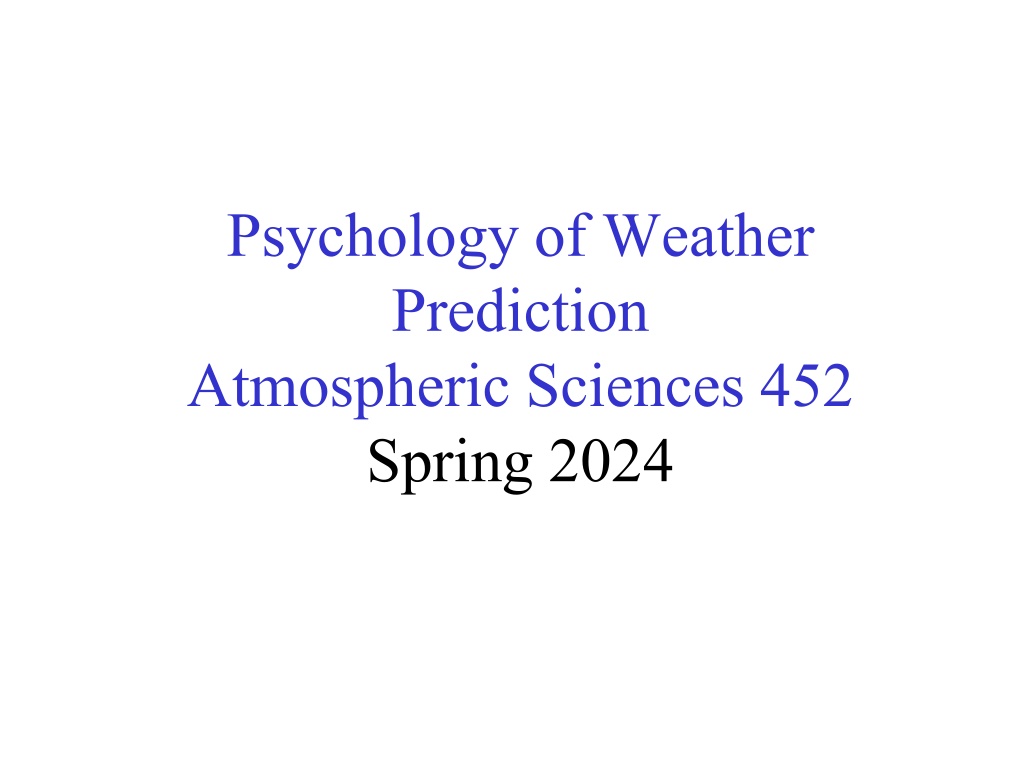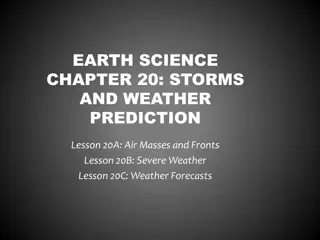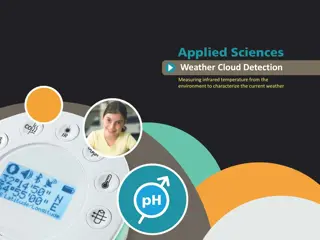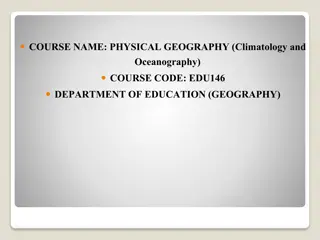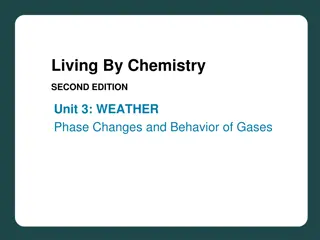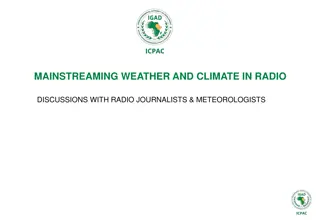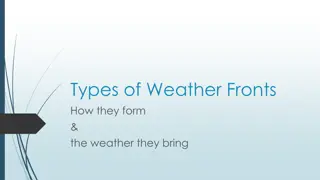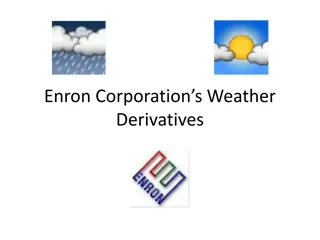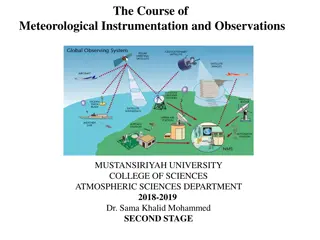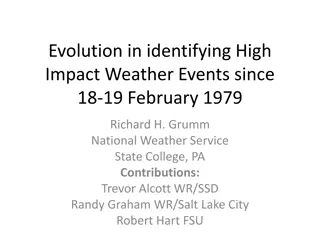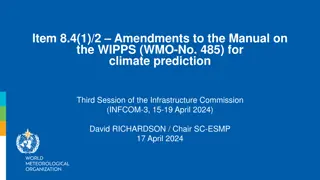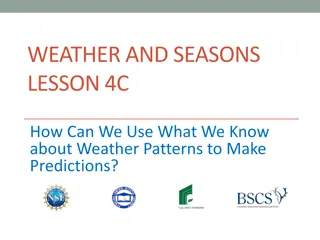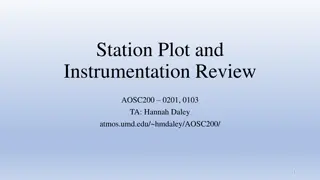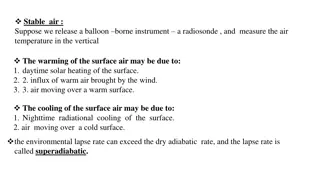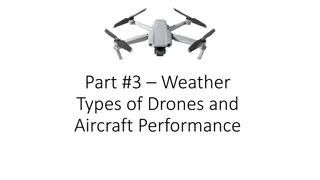Psychology of Weather Prediction in Atmospheric Sciences
Exploring the psychological elements influencing weather forecasting, this study delves into the biases, challenges, and tendencies meteorologists face. From overforecasting to uncertainty communication, the research sheds light on the human factors impacting accurate predictions and the importance of maintaining professional detachment in forecasting for the welfare of society.
- Weather Psychology
- Atmospheric Sciences
- Forecasting Challenges
- Meteorological Biases
- Uncertainty Communication
Download Presentation

Please find below an Image/Link to download the presentation.
The content on the website is provided AS IS for your information and personal use only. It may not be sold, licensed, or shared on other websites without obtaining consent from the author. Download presentation by click this link. If you encounter any issues during the download, it is possible that the publisher has removed the file from their server.
E N D
Presentation Transcript
Psychology of Weather Prediction Atmospheric Sciences 452 Spring 2024
Psychology of Weather Prediction Psychological elements are crucial. Must strive to be mentally neutral about forecasts. Think like Spock (or Data) In some ways, meteorologists are the last people you want making forecasts, because we love interesting weather and have a bias to forecast intense weather too frequently. Sometimes forecasters with great technical knowledge have poor performance because of psychological reasons!
Psychology of Weather Prediction When many things are happening at once, meteorologists often focus on one of them to the detriment of others. Humans like conceptual models and often hold on to them even when reality is at odds with such models. (like fronts) Humans are deterministic animals and often push uncertainty away when we shouldn t.
Major Psychological Elements LOVE Meteorologists love interesting weather and tend to overforecast it OVERCOMPENSATION We tend to excessively compensate for previous errors. This can produce a classic sinusoidal error evolution. MACHO There is a tendency to go for extreme or improbable situations. If you hit, it is like meteorological cocaine high! INSECURE Going with MOS or NWS forecast or fearing to deviate from them substantially.
The Bottom Line Forecasting is very important and critically affects people s lives. It requires professional detachment.
Understanding How Our Customers Use Weather Forecasts Psychological studies are required to understand how people interpret and use forecasts. How can we express predictions in a way to maximize understanding and correct response? A particular issue is probabilistic prediction. How to communicate uncertainty?
And a slight chance of freezing drizzle reminds one of a trip to Antarctica
Study by Professor Joslyn and students
Getting the Correct Response to Forecasts Problem example: Excellent tornado forecasts (2011) in Joplin, MI were unable to stop massive deaths and injury. Forecasts were very skillful but folks did not take the correct actions. Shows the need for psychological studies. Also true with Hurricane Katrina. Many other examples
National Weather Service is Putting Increasing Emphasis on IDSS (Impact-Based Decision Support Services) IDSS includes forecast advice and interpretative services that the NWS provides to help partners, such as emergency personnel and public safety officials, make decisions.
Summary Making skillful weather forecasts is only half the battle. Just as important, and harder, is to: Communicate forecasts skillfully Get society to pay attention and to respond appropriately to save lives and property and to secure maximum economic benefit.
